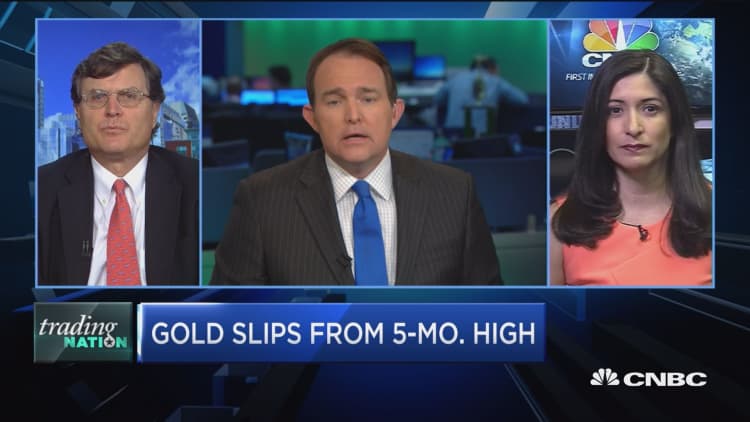
The U.S. dollar sunk immediately after the jobs report, which seemed to make all the sense in the world.
After all, a soft employment report would indicate a weaker-than-expected U.S. economy, and thus would seem to make the Federal Reserve marginally less likely to raise rates — giving the dollar two distinct reasons to drop.
Yet within minutes, the U.S. dollar index not only retraced its move, but broke out to the highest level in nearly a month.
"We didn't have a completely, unambiguously negative report," commented Kathy Lien, managing director of foreign exchange strategy at BK Asset Management.
To be sure, nonfarm payrolls grew by just 98,000 in March according to the Bureau of Labor Statistics, badly missing economists' estimate for 180,000. However, the unemployment rate dropped to 4.5 percent, its lowest reading since before the financial crisis. Indeed, after the shock of the top-line number, many noted that the report actually looked decent.
"I think that brought some investors relief," Lien told CNBC in a Friday phone interview.
The "knee-jerk" reaction post-jobs report was to sell the dollar, said Win Thin, global head of emerging market currency strategy at Brown Brothers Harriman, in a phone interview. But after the "dust settled," traders concluded that the report didn't offer much that would change the Fed's hiking plans.
Still, the stage may not exactly be set for a sustained move higher for the greenback.
The rise was also driven by a "general short-squeeze around the [market] open," Lien said. In general, "the data isn't conducive of a sustained dollar rally."
Looking forward, the currency trader added that increasing geopolitical uncertainty leads her to believe that the dollar recovery won't last.
In a move reflective of that uncertainty, gold spiked to a five-month high on Friday, with the bulk of its gains coming on Thursday night in response to the U.S. missile strike on Syria.
Looking forward, Bank of America Merrill Lynch foreign exchange strategists wrote in a recent report that "the trigger for a meaningful move higher in USD will be strongly predicated on progress on tax reform, while focus is also turning towards the possibility of a June rate hike from the Fed."





